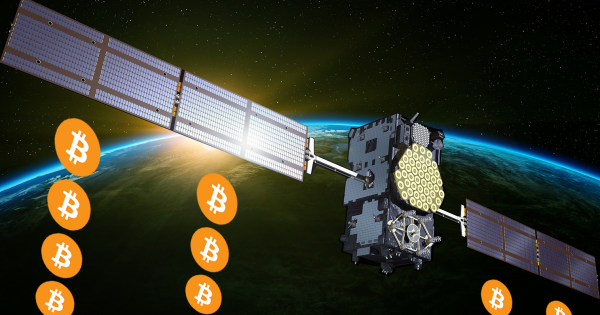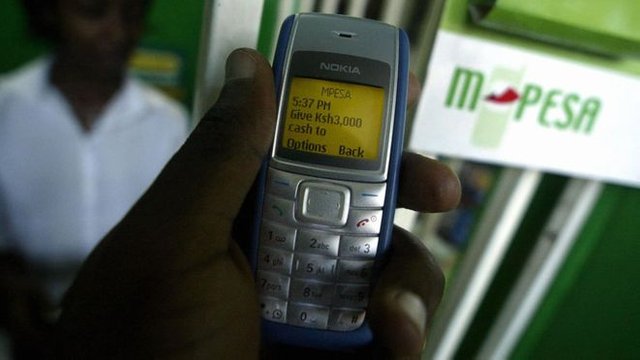Bitcoin Is Heading For The Moon.. Literally. The Company Blockstream Has Unveiled Their Plans For The Launch Of A Bitcoin Satellite Network. Could This Be The Very Beginning Of Bitcoin's Adoption in Underdeveloped Regions?
Having satellites in space dedicated to the Bitcoin network may just seem cool, but it could enable Bitcoin to reach more individuals around the globe than ever before.
One of the most exciting advancements and ideas that came out of Bitcoin was the ability to increase individuals access to financial services, regardless of the individuals location or circumstances. Utilizing cryptocurrency for under-banked individuals around the globe is one of its biggest and most important potential use cases, and the launch of a satellite network will make interacting and communication with the Bitcoin network easier than ever before for many individuals. While many individuals within the US and Europe don't realize how important easy access to internet is, there is still an extremely large portion of the globe that doesn't have easy access to these types of solutions. While internet connectivity and use has been rapidly increasing in many parts of the 'under-developed' world, many individuals still don't have access to the resources that they need to take full advantage of what the internet has to offer.
Satellites running resources for the Bitcoin network aren't only a dream of many cryptocurrency enthusiasts simply because it's so cool, but they will also allow over 99.999% of the populated world the ability to connect to the Bitcoin network regardless of their internet connection. Utilizing a satellite also increases redundancy and decentralization of the network, even though the satellites will simply be serving as full nodes. Running a full Bitcoin node that's required for interacting with the network directly requires a large amount of available computer resources, and is not something that every single Bitcoin user would be willing or interested in doing. Exchanges, companies, and big investors are advised to maintain and run their own nodes for security reasons, but everyday users really don't have a need to run a full node unless they have a desire to help the network. It's easy to connect to these nodes in places where there is internet connection, but without a reliable connection to the internet many individuals in under-developed countries would not have the opportunity to interact with the network.
While the satellites alone will not be enough to cause Bitcoin's adoption in many regions, it will give a greater level of access than Bitcoin has ever been able to achieve in the past.
Regions that don't have reliable and abundant access to the internet are unlikely to have a lot of computer or technology resources. If individuals don't have access to devices which could be used to interact with the satellite, then the satellite wouldn't be able to be as effective as it otherwise would be. I'm sure that some of you may have heard of the mobile phone payment method M-Pesa which has had tremendous success within Kenya and other parts of Africa, and has validates the belief that individuals in these regions are more than willing to adopt mobile payment methods and systems if they are convenient for them. Most of the individuals in these regions own a simple cell phone as their only piece of technology, so it was imperative that the payment service would be able to be used by using nothing besides for the simply phones most of the individuals in these regions have.
There hasn't been a method of sending Bitcoin through simple mobile phones that has had any success, but these satellites may change that. While Bitcoin can't be transferred directly through a text message or other simple mobile phone action, a service could come about which enables individuals to 'send' tokens indirectly using only their mobile phones. The same business and revenue model as M-Pesa uses could be used for a Bitcoin based mobile phone transfer service, and could even be more lucrative for businesses and individuals that provide liquidity for the digital funds. There are thousands of kiosks that serve as M-Pesa location which allow individuals to buy or sell their M-Pesa for cash on the spot, which has been one of the core reasons that M-Pesa has been able to achieve the level of success that it has. The storefronts that serve as M-Pesa locations are general stores and other businesses that were in existance before M-Pesa, and are not exclusively M-Pesa locations.
In order for cryptocurrency or other digital payment systems to be adopted at this point in time, individuals must have easy and convenient access to liquidity. Establishing infrastructure for the exclusive purpose of servicing these transactions would be very costly and risky, but by utilizing existing businesses the costs of running and maintaining the liquidity services is so much lower. The ability to have real time and up-to-date access to the Bitcoin network without internet connection will enable a much wider range of products and services tailored to underdeveloped regions to hit the market than ever before.
While it may seem like country with less technology would be very hesitant to accept mobile payment methods, but the opposite is actually true.
Originally this idea sounds like a total contradiction, but upon further investigation it actually makes a lot of sense. When we consider all of the financial services that are available to individuals within the US, it is pretty clear that the individuals in the US have access to a huge range of different financial instruments and tools. Tools like credit and debit cards are very ingrained in our society, and most individuals consider these services efficient as they are currently. While there are abundant inefficiencies created by these tools and instruments, individuals have relatively little incentive to consider another potential service. Due to the fact that the use of traditional payment instruments are thought to be more trustworthy and safe by most individuals in society, the incentive to change to a different solution is incredibly low.
Individuals without access to traditional financial instruments or tools have responded very differently to the idea of digital payment methods and systems. In Kenya alone, over 60% of the citizens use the M-Pesa as their primary financial tool, and it has become adopted within the country. Having to use cash for all purchases is a huge issue, and the lower the amount of financial resources is within the region the larger chance the region would have in terms of adoption of cryptocurrency. Instead of having to establish and maintain and infrastructure like banks do within the US, the adoption of cryptocurrency services and methods could make these services more cost effective than ever before. Investing in traditional financial infrastructure in many regions of the world is simply not practical from an economic perspective, but the low costs associated with cryptocurrency services could bring tools to these people that they desperately need.
I really hope that you enjoyed this post, and as always I urge you to leave any comments, questions, input, ect. in the comments below! Thanks for reading!



woow such great news, bitcoin is going places..literally!!!
I thank you for giveing us the info
Thank you for sharing the good information Upvote and i follow you :D
Congratulations @cryptofreedom! You have received a personal award!
Click on the badge to view your own Board of Honor on SteemitBoard.